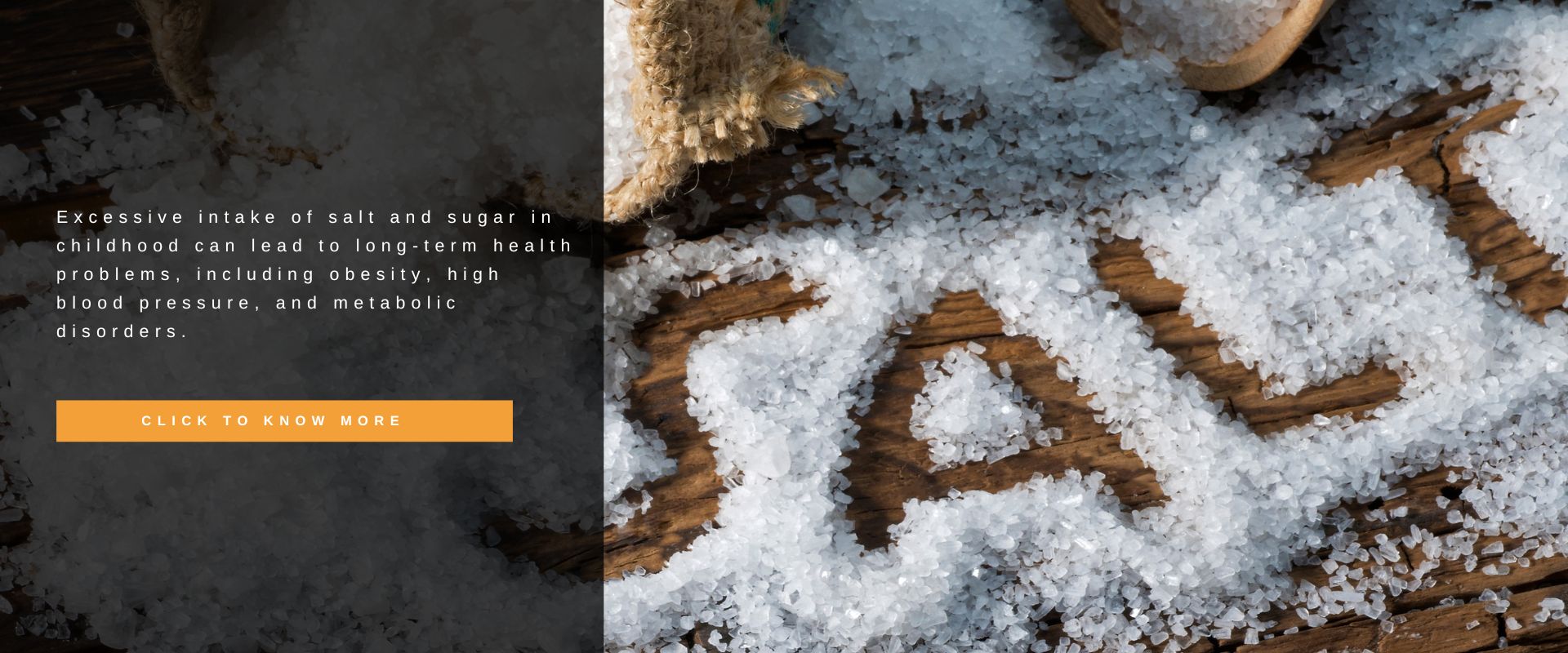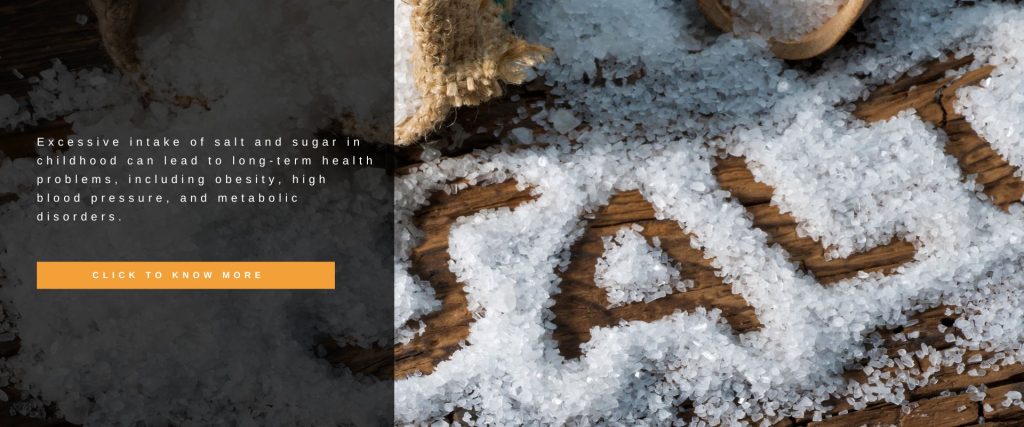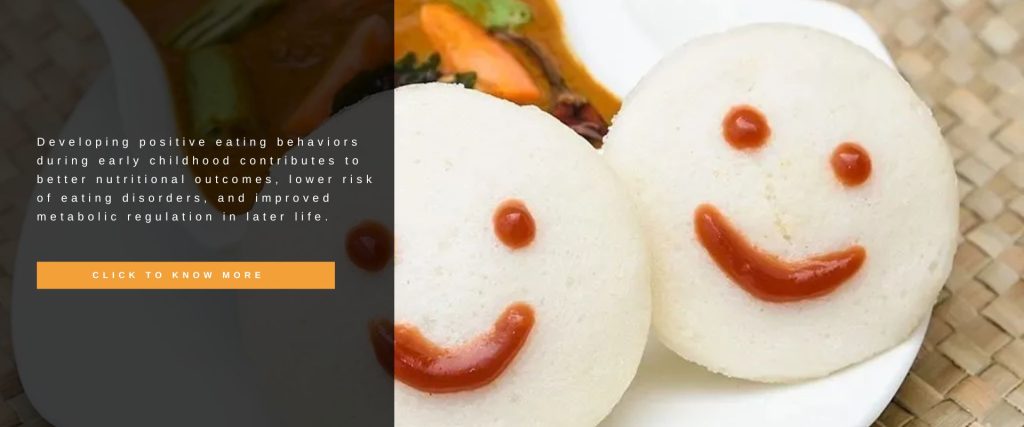Introduction
As parents, we strive to provide the best nutrition for our children, but modern diets—filled with processed foods, sugary snacks, and salty fast foods—pose a significant risk to their health. Excessive intake of salt and sugar in childhood can lead to long-term health problems, including obesity, high blood pressure, and metabolic disorders. Understanding the risks and making informed food choices can set the foundation for a healthier future for our children.
The Harmful Effects of Excess Sugar
Sugar is one of the most addictive substances in modern diets, often hidden in foods marketed as “healthy” options like flavored yogurts, fruit juices, and breakfast cereals. Excess sugar consumption in children can lead to:
- Obesity & Type 2 Diabetes
Studies have shown that high sugar intake contributes to childhood obesity by increasing calorie consumption without providing essential nutrients. Over time, this can lead to insulin resistance, increasing the risk of Type 2 diabetes in younger age groups.
- Weakened Immune System
Excess sugar can suppress the immune system, making children more susceptible to frequent infections and illnesses.
- Tooth Decay & Dental Issues
Sugary foods and beverages create a breeding ground for bacteria in the mouth, leading to cavities and poor dental health.
- Hyperactivity & Poor Concentration
While sugar highs and crashes are often debated, research indicates that excessive sugar intake can impact children’s mood, energy levels, and ability to focus in school.
How to Reduce Sugar in Your Child’s Diet
- Swap packaged fruit juices with fresh whole fruits or homemade smoothies.
- Choose natural sweeteners like dates, jaggery, or honey in moderation.
- Read food labels carefully to identify hidden sugars.
- Encourage water and coconut water over sodas and flavored drinks.
The Harmful Effects of Excess Salt
Salt is necessary for body function, but excess consumption—common in processed foods—can be harmful. Children are particularly vulnerable to the effects of too much sodium, which can cause:
- High Blood Pressure & Heart Disease Risk
A high-sodium diet in childhood can lead to hypertension, increasing the risk of cardiovascular diseases later in life.
- Kidney Damage
Children’s kidneys are not as efficient at processing excess sodium, which can contribute to kidney strain and early signs of kidney disease.
- Loss of Bone Strength
Too much salt can interfere with calcium absorption, leading to weaker bones and an increased risk of osteoporosis in adulthood.
How to Reduce Salt in Your Child’s Diet
- Limit processed foods like chips, instant noodles, and packaged snacks.
- Use fresh herbs and mild spices instead of excess table salt.
- Choose homemade meals over restaurant or fast-food options.
- Encourage healthy snack alternatives like roasted makhana, fruit, or nuts.
Conclusion
Reducing excess salt and sugar in children’s diets is not about complete elimination but rather mindful moderation. By making small, consistent changes, parents can help their children develop healthy eating habits that will benefit them for a lifetime. Prioritizing whole, natural foods over processed options ensures they get essential nutrients without unnecessary additives.





